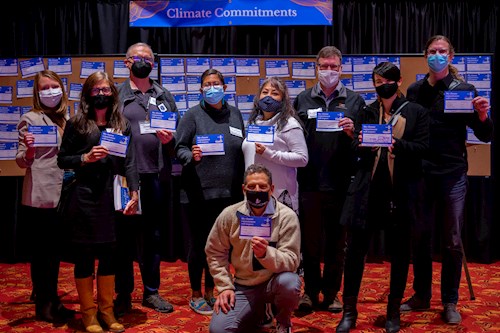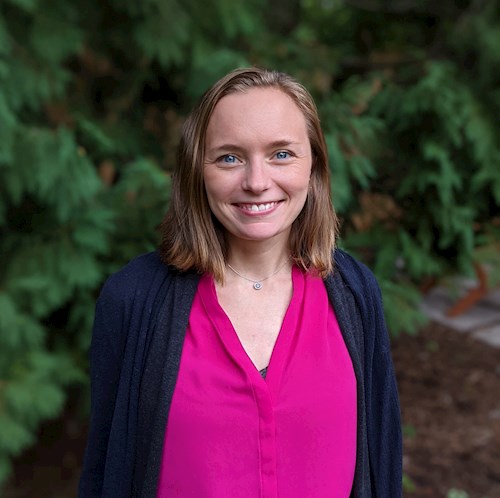

Melanie Askay
Last week I had the privilege of attending the 2021 Sustain Dane Summit. This annual gathering, hosted by Sustain Dane and co-sponsored by the Office of Energy and Climate Change, was a clear call to climate action, providing me and the rest of the attendees with an actionable framework to reduce my carbon footprint and inspiring me to make changes to my everyday life.
Keynote speaker Dr. Kimberly Nicholas, Sustainability scientist at Lund University and author of Under the Sky We Make: How to be a Human in a Warming World, challenged the audience to move past the five stages of climate denial—ignorance, avoidance, doom, all the feels, and purpose – and confront their inaction. Her view tests the complacent assumption that individual actions don’t matter.
I admit to falling victim to this “why bother” thinking too. But policy alone cannot end our climate crisis. We need active, educated citizens to understand that their actions can have an impact, and that their support will embolden politicians to demand more from our policymakers and fellow citizens.
What struck me from her keynote was request that we reimagine our relationship with the earth and our exploitation mindset where a) some people are presumed to be superior others, and b) people are presumed to be above nature. Consider, instead, that nature provides us gifts, and not services. This view presumes a reciprocal relationship where we have an obligation to treat the earth as we would other relationships in our life.
So where do we go from here? First, if you’re reading this blog you are already climate-curious. What kind of climate commitment can you make that is actionable? Try to focus less on the total impact of any action initially and instead steer yourself towards what makes sense for you and your life. First, use the Household Carbon Calculator to understand your emissions, and then begin with one area in which you know you can make a difference. Whether it’s reducing meat consumption, traveling with more energy-conscious modes of transportation, or become an ambassador for change in your community, we can all take small but important steps towards reducing our carbon footprint.
And ultimately, Dr. Nicholas makes the point that finally living in line with your values is a relief for those who have been avoiding their own contributions to the climate crisis. Recognizing that we can all play a part in the solution is significant hurdle. And after asking these questions of ourselves, what can we do to authentically engage others in our journey? Opening up a dialogue and sharing your efforts inspires a ripple effect of action.
Affecting largescale change is a long-term, complicated challenge. In the process, we need to elevate voices that have been left behind and be aware that climate change affects underrepresented populations more than those with privilege. Two panels at the Sustain Dane Summit highlighted the benefits of integrating equity into all of our climate efforts. But as Angela Russell, Chief Diversity Officer at CUNA Mutual Group, so eloquently noted, baby steps seem small. But in reality, those steps are fearless, wobbly, and treacherous. More, those steps are also game changing—for the baby and its family. This perspective allows us to so clearly see that individual steps don’t need to be perfect. You don’t need to have all the answers. You just need to start somewhere. So let’s do this, Dane County.

Melanie is a Climate Specialist within the Dane County’s Office of Energy and Climate Change.n her role as Climate Specialist she is implementing the recommendations set forth in the Climate Action Plan. Prior to joining Dane County Melanie was in California where she focused her efforts on land and water conservation statewide through grants and policymaking.
The Dane County Office of Energy & Climate Change maintains this blog as a way to offer:
To be sure that you don't miss new blog entries, subscribe to our email updates.